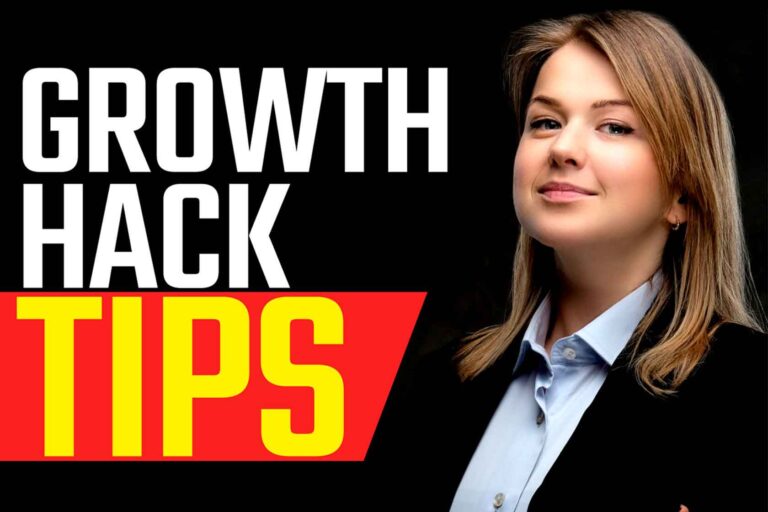Hack your Business Growth with Digital Marketing
Ready to skyrocket your business to new heights without breaking the bank? In this chapter, we unveil the ultimate collection of FREE digital marketing tools designed specifically for enterprising entrepreneurs like YOU! Whether you’re a startup founder, a small business owner, or an ambitious solopreneur, these indispensable tools will become your secret weapons to conquer the online world. These free tools are not just your run-of-the-mill marketing solutions; they are powerful growth hacking instruments that have the potential to drive massive traffic, boost conversions, and elevate your brand’s visibility across various platforms. Best of all, they won’t cost you a single penny!
Google Analytics
First up, we have the almighty Google Analytics. If you have a website or an online presence (which you definitely should), this tool is an absolute must-have. Google Analytics provides invaluable insights into your website’s performance, user behavior, and traffic sources. By understanding your audience better, you can make data-driven decisions to optimize your website and improve conversion rates. By adding a unique tracking code to your website, you can gather valuable data on how visitors interact with your site. It allows you to see how many people are currently on your website, the pages they are visiting, and their geographical location. As a result, you can understand where your website traffic is coming from, whether it’s from organic search, social media, paid advertising, or referrals. This knowledge enables you to allocate resources effectively. It also enables you to track and measure the success of your goals and conversions, such as completed purchases or sign-ups. This feature is crucial for assessing the effectiveness of your marketing campaigns.
Canva
Next on our list is Canva, the ultimate design tool for non-designers. Canva is a game-changer when it comes to creating stunning graphics, social media posts, marketing materials, and even presentations. Canva’s interface is incredibly intuitive and easy to use. You don’t need to be a design expert to create stunning graphics with this tool. The level of customization available in Canva is impressive. You can change colors, fonts, images, and add your own elements to make your designs truly unique. If you’re working on a project with a team, Canva’s collaborative features allow multiple users to work together in real-time. It comes with a Pro subscribers plan as well. Canva Pro subscribers gain access to additional tools, premium templates, and the ability to resize designs for various platforms effortlessly. With Canva Pro’s Brand Kit, you can upload your brand’s fonts, colors, and logos, ensuring consistency across all your designs.
Mailchimp
Now, let’s talk about email marketing. Mailchimp is the go-to platform for managing your email campaigns. Whether you want to send newsletters, promotional emails, or automated sequences, Mailchimp has got you covered. It lets you segment your audience, track engagement, and measure your campaign’s success. Building and nurturing your customer relationships has never been easier. With Mailchimp, you can create and send professional-looking email campaigns to your subscribers with ease. Mailchimp allows you to organize and manage your subscriber lists effortlessly. You can segment your audience based on various criteria to target them more effectively. One of the most powerful features of Mailchimp is its automation capabilities. You can set up automated email sequences, welcome emails, and even abandoned cart emails to nurture your leads and customers. Mailchimp provides a wide range of customizable email templates, making it simple to create visually appealing emails that align with your brand.
HubSpot CRM
HubSpot CRM stands for Customer Relationship Management, and it’s a robust platform designed to help businesses organize and streamline their sales and marketing efforts. It offers an all-in-one solution to manage customer interactions, track deals, and nurture leads effectively. One of the first things you’ll notice when using HubSpot CRM is its user-friendly interface. Whether you’re a seasoned sales professional or new to CRM systems, HubSpot makes navigation a breeze. You can import contacts seamlessly, organize them into lists, and segment them based on various criteria. This helps you tailor your marketing and sales efforts to specific audiences, increasing your chances of conversion. Keeping track of deals and sales progress is crucial for any business. HubSpot CRM lets you visualize your deals on a customizable board, making it easy to see where each deal stands in the sales process. You can set reminders and automate follow-up emails, ensuring no potential customer falls through the cracks.
Grammarly
Now, here’s a tool that will ensure you always put your best foot forward in your written communications. Grammarly is an AI-powered writing assistant that checks for grammar, spelling, and punctuation errors. Grammarly scans your text for errors and offers suggestions for corrections in real-time. This means you can catch those pesky typos and grammatical mistakes before they get sent out or published. It also provides style and tone suggestions. This means it can help you maintain a consistent tone in your writing, whether it’s professional, casual, or anything in between. Grammarly offers a free version, which provides the essential spelling and grammar checks. But for those looking for a more comprehensive writing assistant, Grammarly offers a premium version as well. With Grammarly Premium, you get access to more advanced features like clarity suggestions, vocabulary enhancement, and even a plagiarism detector.
Trello
Organize, collaborate, and get things done efficiently with Trello. This project management tool uses boards, lists, and cards to help you visualize your tasks and workflows. It’s perfect for solo entrepreneurs or teams working on projects together. With Trello, you can stay on top of your to-do lists, set deadlines, and monitor progress – all in one place! It’s like having your very own virtual whiteboard filled with cards, lists, and boards. Each card represents a task, and you can organize them into lists based on their status or category. It’s incredibly flexible and can be customized to fit various workflows, from personal to professional projects. One of the most significant advantages of Trello is its collaboration features. If you’re working in a team, you can invite your colleagues to join your board. This way, everyone stays on the same page, and you can seamlessly communicate through comments, mentions, and attachments on cards. And guess what? Trello integrates with various third-party apps like Slack and Zoom, making communication and collaboration even more efficient.
Answer the Public
Let’s move on to content marketing! Answer the Public is a fantastic tool for generating content ideas based on real search queries. You can type in a keyword related to your niche, and it will provide you with a wealth of questions, prepositions, and comparisons people are searching for. This invaluable resource ensures you’re creating content that addresses your audience’s actual needs. You can simply go to their website and enter your keyword or topic of interest. Click on the search button, and in just a few seconds, you’ll get a beautiful visual representation of the questions people are asking about that topic. “Answer the Public” not only helps with blog posts and articles but also enhances your video content. You can use these questions as video titles or to structure your video’s content, ensuring you’re hitting the right points your viewers care about.
Buffer
Social media management can be overwhelming, but Buffer can save the day. Buffer is a social media scheduling tool that allows you to plan and publish posts across multiple platforms in advance. It also provides analytics to track post performance and engagement. With Buffer, you can maintain a consistent presence on social media without feeling overwhelmed. As AI technology continues to advance, researchers are continually working to improve the capabilities of the answer buffer. However, One challenge is the size of the buffer. AI models have a maximum capacity to store information, so retaining too much context can lead to important details being overwritten. By optimizing its size and enhancing memory retention, AI models can become even more proficient at handling complex and extended conversations.
SurveyMonkey
Last but not least, we have SurveyMonkey, a powerful survey platform. Surveys are a fantastic way to gather feedback from your customers, understand their pain points, and identify areas for improvement. With SurveyMonkey’s customizable surveys and detailed reporting, you can make data-backed decisions that align with your audience’s preferences and needs. It offers you multiple distribution methods, including sharing through email, social media, website embedding, and even through QR codes. Once you have collected enough responses, it’s time to analyze the data. SurveyMonkey offers powerful tools to filter, cross-tabulate, and visualize the results. You can create charts, graphs, and even word clouds to gain valuable insights from the collected data.
And there you have it, folks – nine amazing tools that every entrepreneur should have in their toolkit. If you found this post helpful, don’t forget share it in social media and bookmarked the page link for future purpose. Thank you so much for staying with us today. Remember, your success is our mission, and we’re here to support you every step of the way. Until next time, keep hustling, keep innovating, and keep growing. Goodbye!


